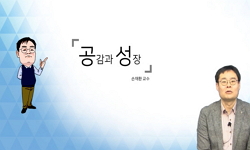피터 싱어는 쾌・고 감수능력을 기준으로 인간뿐 아니라 동물의 이익도 동등하게 고려되어야 한다는 ‘이익 동등 고려 원리’를 제시한다. 이때 우리는 타자의 고통을 직접 경험할 수는 없...
http://chineseinput.net/에서 pinyin(병음)방식으로 중국어를 변환할 수 있습니다.
변환된 중국어를 복사하여 사용하시면 됩니다.
- 中文 을 입력하시려면 zhongwen을 입력하시고 space를누르시면됩니다.
- 北京 을 입력하시려면 beijing을 입력하시고 space를 누르시면 됩니다.

피터 싱어의 동물해방론과 퇴계의 ‘인물위기지병 (認物爲己之病)’에 대한 뇌신경과학적 검증— 타자(他者)의 고통을 이해하는 기제(機制)를 중심으로 — = A Neuroscientific Verification of Peter Singer’s “Animal Liberation” and Toegye’s “In-mul-wi-gi-ji-byeong(認物爲己之病)” through Mirror Neuron Theory based on the mechanism of understanding the pain of others
한글로보기부가정보
국문 초록 (Abstract)
피터 싱어는 쾌・고 감수능력을 기준으로 인간뿐 아니라 동물의 이익도 동등하게 고려되어야 한다는 ‘이익 동등 고려 원리’를 제시한다. 이때 우리는 타자의 고통을 직접 경험할 수는 없으며 타자가 보이는 다양한 외적 징후들로부터 그가 고통을 느낀다고 추론할 수 있을 따름이라고 그는 주장한다. 이러한 구도 안에서는 나의 아버지와 현자가 불타는 건물에 갇혀 함께 죽어가는 상황에서 두 사람의 고통은 동일한 값으로 측정될 수 있으며 공평한 입장에서 모두에게 이익이 되는 결정, 즉 현자를 우선 구해야 한다는 결론―비록 이론적일지라도―이 도출된다. 그러나 이와 같은 생각은 효(孝)를 근간으로 하는 유가의 입장에서 받아들이기 어렵다. 퇴계는 성학십도 중 「서명도」와 「서명고증강의」 등에서 지각을 곧바로 인(仁)이라고는 할 수 없지만, 상상하고 추론하여 타인의 아픔을 이해하는 것으로는 인(仁)을 체득할 수 없다고 한다. 손으로 맥을 짚듯이 지각을 통하여 직접 체득해야지, 무턱대고 천지만물이 일체라고만 하면 ‘겸애’・‘인물위기지병(認物爲己之病)’에 빠질 것이라고 경계한다. 쟁점은 타자의 고통을 내가 ‘인식하는가?’ 아니면 ‘느끼는가?’이다. 그런데 거울 뉴런 이론은 타자의 고통을 내가 인식하거나 나를 타자 안으로 투사하는 것이 아니라, 타자를 내 안으로 끌어들여 타자의 고통을 내 몸과 마음으로 직접 느낄 수 있는 가능성을 보여준다. 그렇다면, 피터 싱어의 동물해방이론은 타자가 나와 같이 고통을 느낄 것이라는 추론을 통하여 타자를 나와 같은 존재로 ‘인식’하는 병, 즉 ‘인물위기지병’에 걸려서 무부(無父)의 지경에 빠져 있다고 진단될 수 있으며, 이러한 진단은 거울 뉴런 이론에 의해 검증될 수 있다고 필자는 주장한다.
다국어 초록 (Multilingual Abstract)
Peter Singer argues in Animal Liberation that we can only infer the pain of others through the external signs we can observe from them. He argues that we cannot directly experience the pain of others but can only infer that they are feeling pain from ...
Peter Singer argues in Animal Liberation that we can only infer the pain of others through the external signs we can observe from them. He argues that we cannot directly experience the pain of others but can only infer that they are feeling pain from various external signs. From this perspective, if my father and a wise man were in a life-threatening situation, such as a burning building, their pain could be measured at the same level. Thus, it is concluded, albeit it may just be theoretical, that we should make a decision that benefits everyone and save the wise man first. However, this notion presents a challenge for Confucianists, as it contradicts their deeply held belief in filial piety (Hyo 孝). Toegye suggests that In(仁) cannot be achieved through imagination or presumption, but it should be learned from experience through sensation as if one is feeling one’s pulse by hand. The main issue is whether we ‘perceive’ or ‘feel’ the pain of others. However, the Mirror Neuron theory shows that we can pull others into ourselves and feel their pain with our own body and heart rather than merely perceiving their pain or projecting ourselves onto others. To that end, we can conclude that Peter Singer’s Animal Liberation is invalid as it has a flaw of “In-mul-wi-gi-ji-byeong(認物爲己之病),” meaning that it mistakenly perceives others as the same as oneself from inferring that others will feel pain as such as oneself.
동일학술지(권/호) 다른 논문
-
- 한국철학사연구회
- 최영성
- 2024
- KCI등재
-
신채호의 국수보전론(國粹保全論)과 유학 인식에 관한 연구
- 한국철학사연구회
- 박정심
- 2024
- KCI등재
-
- 한국철학사연구회
- 백민정
- 2024
- KCI등재
-
유학으로 인구문제 성찰하기— 관계인구 개념의 유학적 활용을 중심으로 —
- 한국철학사연구회
- 안승우
- 2024
- KCI등재




 KCI
KCI KISS
KISS


